Vietnamese
High income from famous black pigs and ducks
Mr. Luong Van Phi’s farm in Lien Ban village, Chau Thang commune is located peacefully amidst forests, mountains, streams and creeks. In the August sun, Mr. Phi’s small hut next to a small stream is still cool because of the trees that provide shade.
Behind the hut, Mr. Phi dug a fish pond connecting the water source to the stream. On the pond, he raises a flock of nearly 300 Quy ducks, over 1 month old. His family receives support from the State for the breed, feed, and care techniques of these 300 Quy ducks.
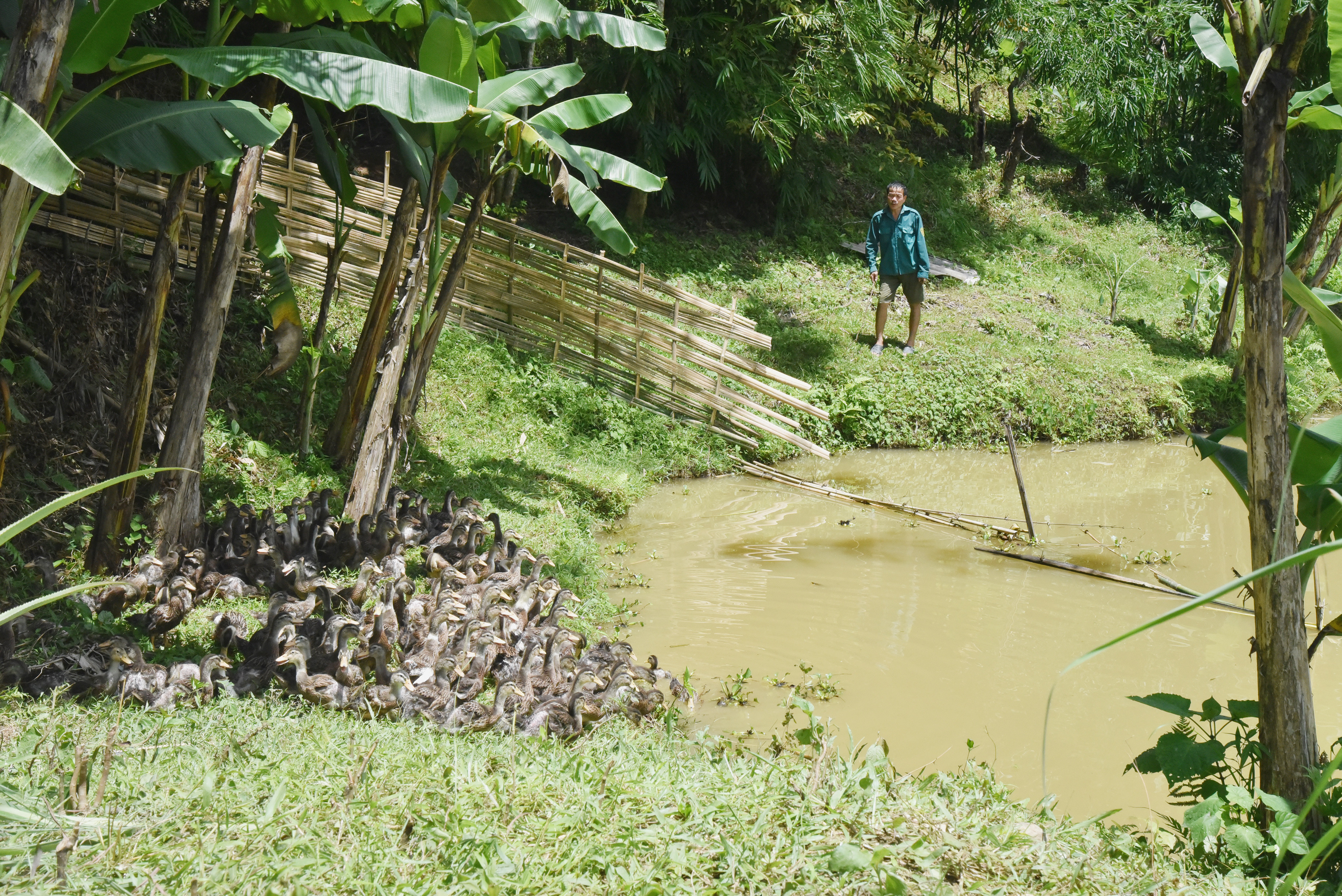
“In the past, I also raised ducks but only a few to serve the family's needs. Moreover, the duck breeds were also bought floating on the market, instead of having the original Quy gourd duck source as the District Agricultural Service Center provides now. With support for breeds, food and agricultural staff guiding us on how to care for them, we are very assured and happy to see a stable source of income from raising the specialty breed of our hometown. With an abundant amount of natural food, the ducks adapt well to the environment here, so after about 4 months I have a decent source of income" - Mr. Phi confided.
Following Mr. Luong Van Phi, Mr. Le My Trang - Director of the Agricultural Service Center of Quy Chau district said that Mr. Phi is one of 10 households that have been supported with duck breeds along with 1 month of food and vaccination for ducks. The number of support for each household is 300 ducks with the genetic standard of Quy Chau native ducks.
For example, the households of Mr. Sam Van Thieu and Lu Van Tien in Hoa Tien 1 village, Chau Tien commune were each supported with 150 Quy ducks, the support source was taken from the district budget according to the food hygiene and safety program in 2022. With technical guidance and care from the people, after more than 4 months of raising, they were harvested and sold at an average price of 300,000 VND/duck. With the regulation that farmers must maintain a mixed herd of livestock, households used the money from selling meat ducks to buy ducklings to continue re-herding.
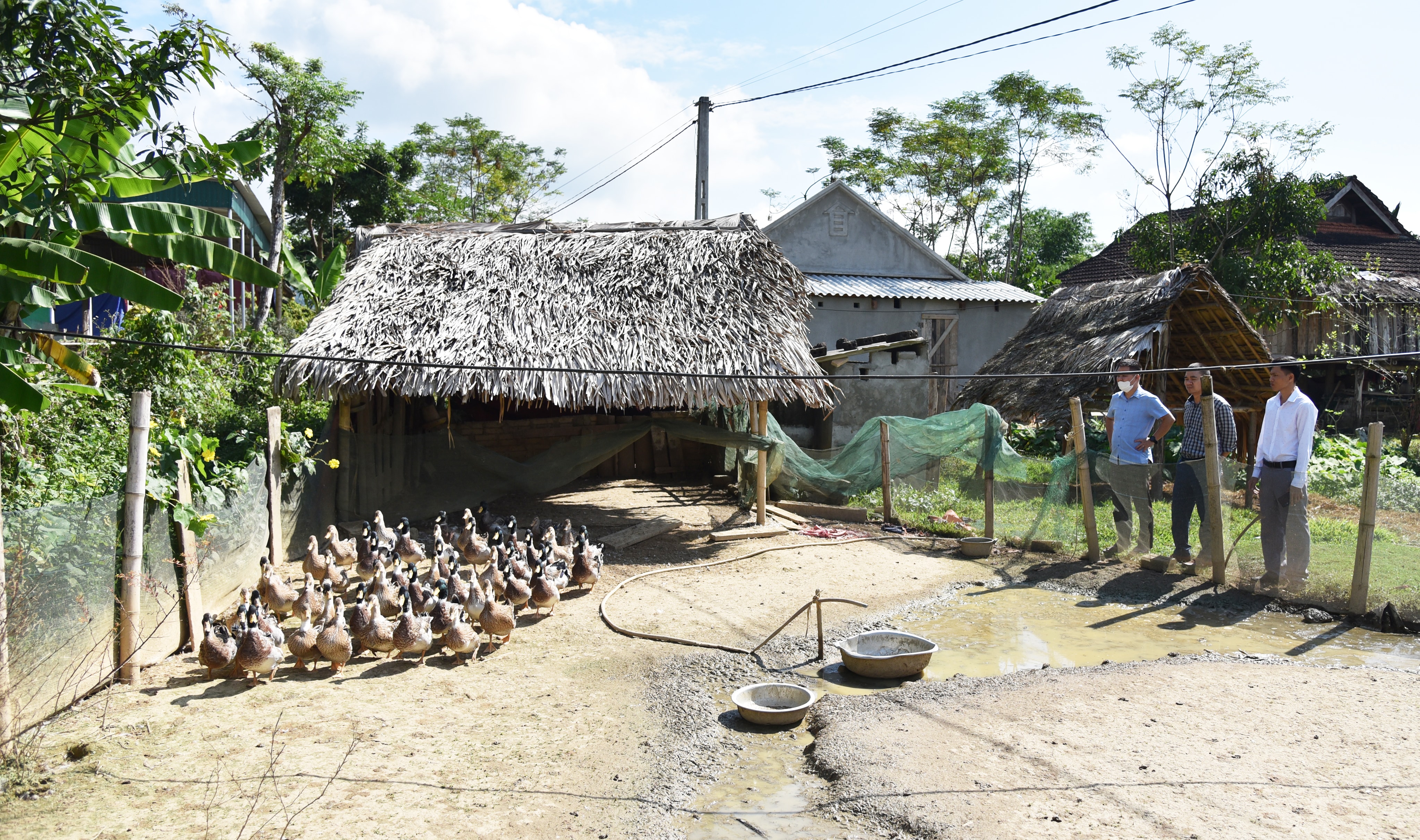
With this method, many households in Chau Tien commune as well as other communes that have received support have had a stable source of income. With each household raising 150 - 300 pigs, earning over 20 million VND/batch, they have both a high source of income and capital to sustainably rotate livestock.
In addition to restoring, preserving genetic resources and expanding Quy duck farming, Quy Chau district people also maintain the breeding of native black pigs, which not only helps to take advantage of the abundant food resources in the locality, but also helps households to escape poverty and get rich from this typical local breed. In addition, black pork is also the ingredient that determines the typical quality of Quy Chau district's OCOP products such as smoked pork, sausages, and Chinese sausages.
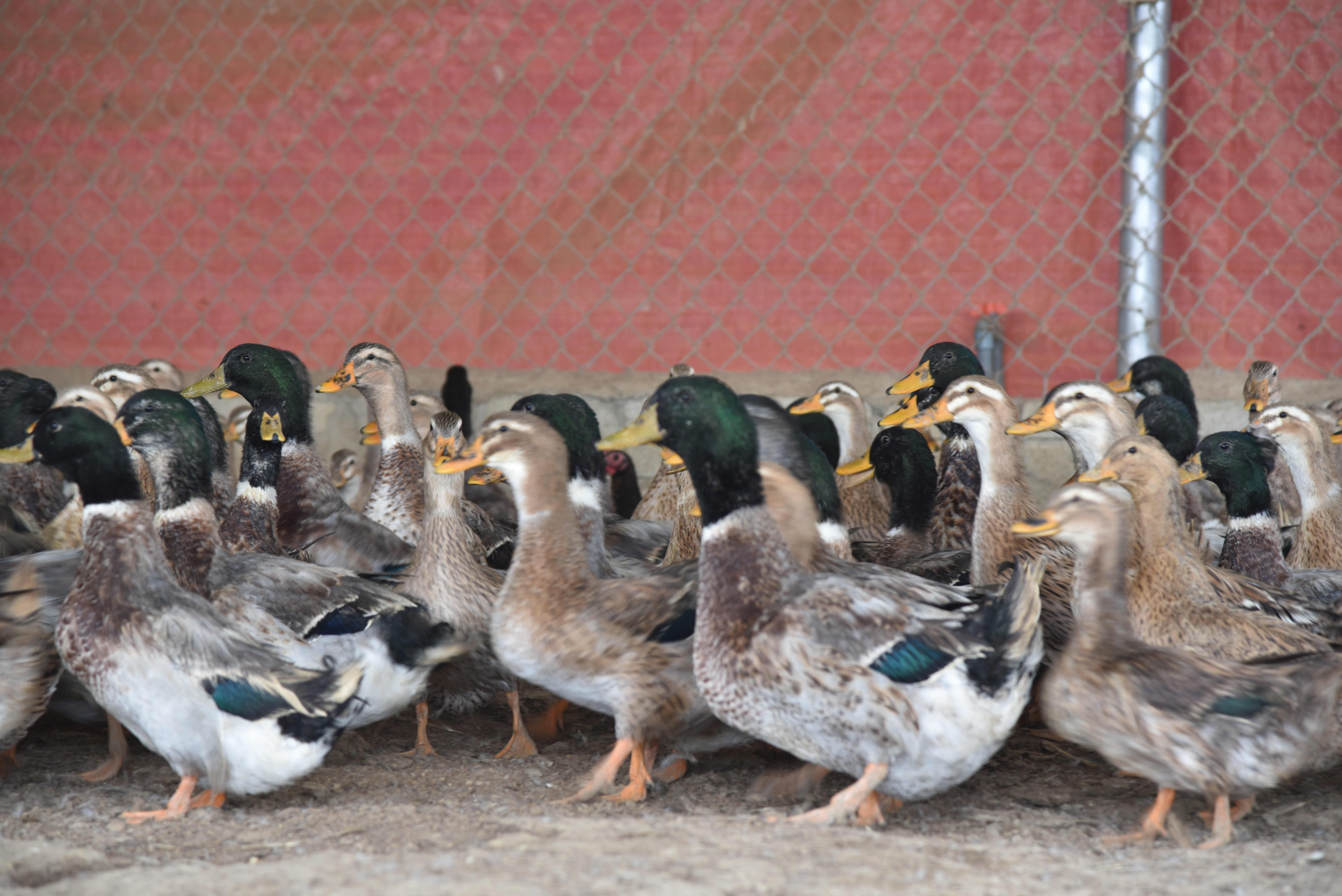
Mr. Lo Van Cuong in Na Pua village, Chau Nga commune said that due to the terrain being quite far from the district center, people in Chau Nga commune invest in household-scale livestock farming, rotating the batches of livestock, not investing on a large scale. Mr. Cuong's family, like other households, raises 5-7 native black pigs. The food for the pigs is mainly plants, vegetables, and tubers grown in the home garden such as bananas, sweet potato leaves, cassava, combined with grinding and composting elephant grass stems, corn stalks, etc., so as long as they are diligent, they can have enough food to feed the pigs. Raising both meat pigs and sows, each year Mr. Cuong's family also earns tens of millions of dong from raising black pigs.
Year-round income from cypress trees
In Quy Chau district, with its unique natural conditions, each household is guided to create a sustainable livelihood from raising livestock and growing native plants and animals, often combined with farming in the direction of family farms and integrated forest gardens.
For example, Mr. Luong Van Phi's household in Lien Ban village, Chau Thang commune. In addition to raising 300 Quy ducks and 4 local yellow cows, Mr. Phi also protects more than 2 hectares of larva trees. The larva forest is both food for cows and a shield for houses and gardens during storms and floods from erosion and landslides. Mr. Phi said that larva trees are easy to care for and provide income all year round. He exploits larva trees in a "rolling" manner in each forest area, each time exploiting about 0.5 hectares, he earns an average income of 10 million VND.
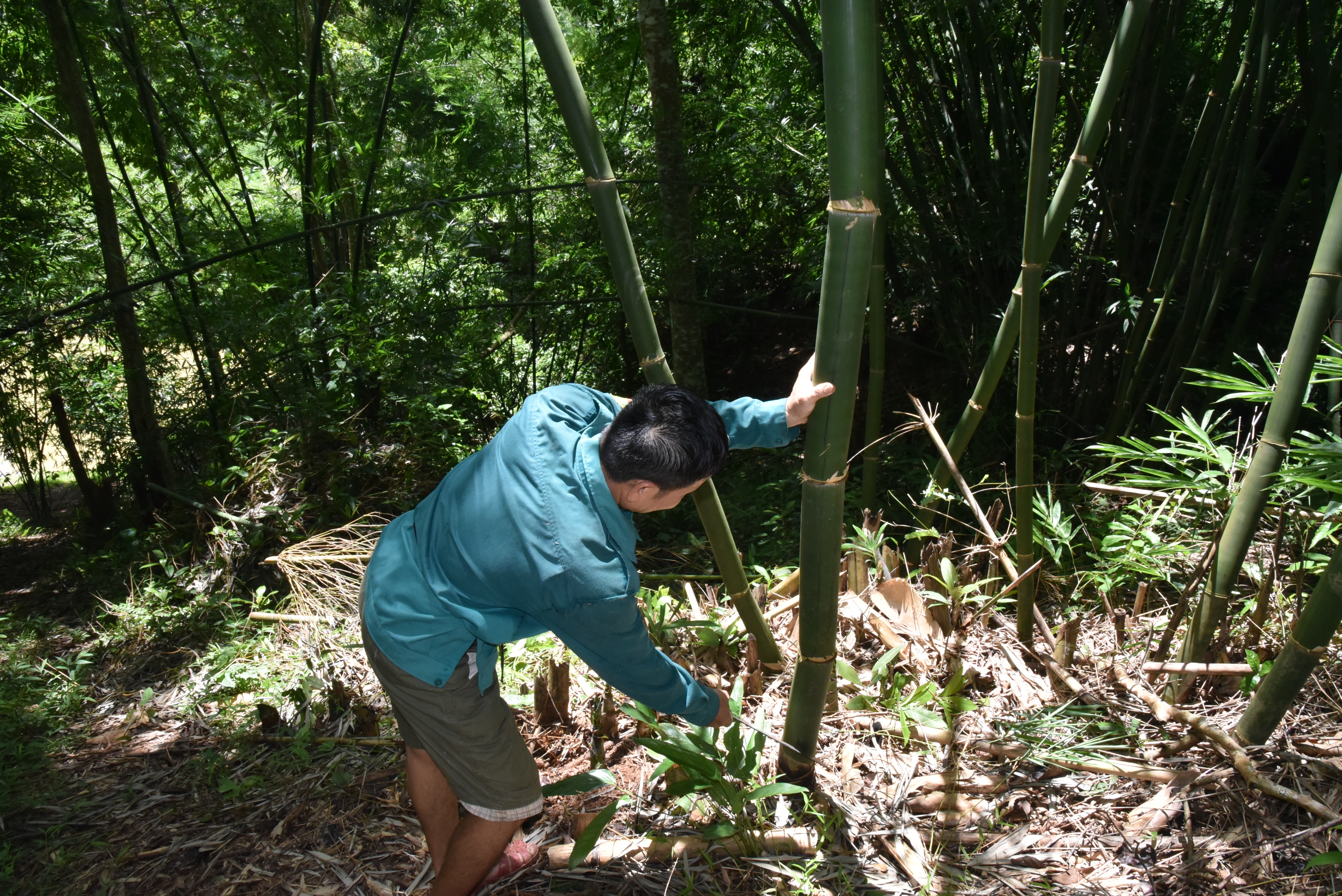
“Fresh lung trees are purchased by businesses at 12,000 - 13,000 VND/yen. Dried lung trees are more expensive, around 38,000 - 40,000 VND/yen, so we often take advantage of the pre-processing process to sell dried lung trees. After cutting down the lung trees, people scrape off the thin green bark called tinh lung, cut them into pieces according to the size ordered by businesses, split them into small pieces and dry them,” Mr. Phi shared.
When exploiting each area of lùng forest, people will choose to cut down old trees, keep small trees and protect the bamboo shoots. On average, after 2 years, lùng forest will begin to be harvested all year round. Each household planting 1 hectare will earn about 15-20 million VND/harvesting period. The whole Chau Thang commune has about 110 hectares of lùng assigned to people to protect and raise, bringing a not small economic source of income to the people, it is a tree to eliminate hunger and reduce poverty in this locality.
Replicating sustainable livelihood models
Preserving genetic resources, raising Quy ducks, raising local black pigs, or planting and protecting mangrove forests... are the contents of Project No. 06 dated November 24, 2020 of Quy Chau District Party Committee on developing key agricultural products in the period 2020-2025, and Decision No. 1363 dated December 15, 2020 of Quy Chau District People's Committee.
Promoting the development of specialty livestock breeding such as black pigs and Quy ducks is one of the contents of the program to develop commodity livestock breeding in the direction of semi-industrial concentration, encouraging the expansion of farm and ranch production scale associated with the hill garden economy that the People's Committee of Quy Chau district is implementing. In particular, focusing on developing livestock with high economic value such as local pigs, Quy ducks and replicating models of raising new breeds of dairy cows and beef cattle (3B cows, high-quality cows). Thanks to that, currently, in Quy Chau district, livestock and poultry herds have been restored after the epidemic and have developed stably, with the average output of fresh meat mainly exported reaching 4,773 tons/year.
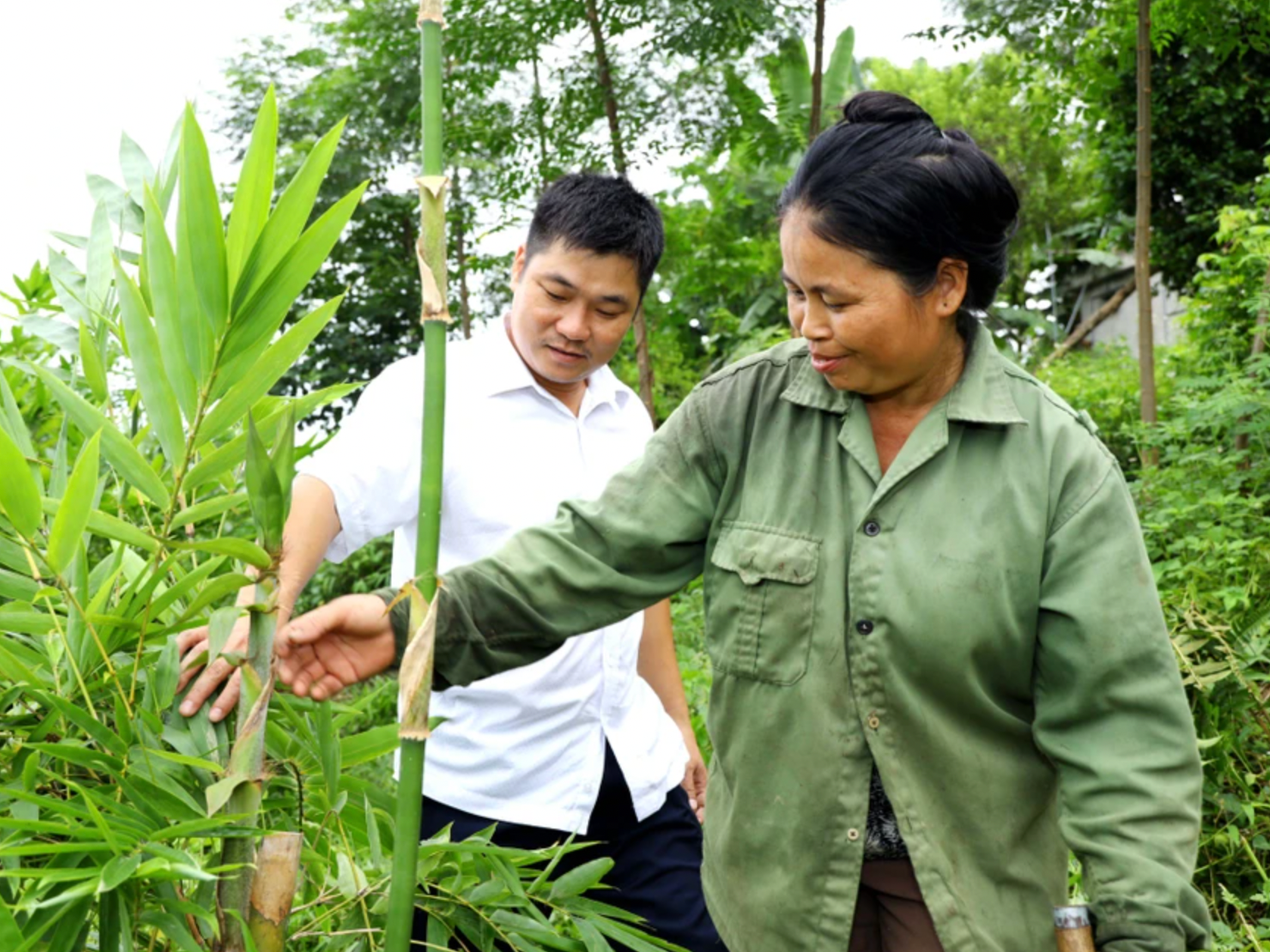
Quy Chau district is currently maintaining and developing 10,000 ducks in 9 communes (except Chau Thang, Chau Binh and Tan Lac town). In which, many are concentrated in some communes with favorable conditions such as Chau Tien, Chau Hanh, Chau Binh, Dien Lam... and based on the selection of the existing duck flock in the area and the Quy duck gene breed stored at the Animal Husbandry Institute. Restore and sustainably develop 958.9 hectares of natural bamboo and bamboo forests to ensure the source of materials for the incense production industry, villages with traditional crafts in community tourism spots.
Mr. Luong Tri Dung - Head of the Department of Agriculture and Rural Development of Quy Chau district said that in the coming time, Quy Chau will continue to focus on implementing agricultural, forestry and fishery production projects; continue to restructure agricultural and forestry production reasonably, promote mechanization and apply scientific and technological advances in production. Preserve and develop native timber trees and medicinal plants under the forest canopy, build medicinal plant planting models and gradually form medicinal plant growing areas to increase income per unit area. Focus on processing forest products, mastering quality plant and animal breeds, creating sustainable livelihoods for people and becoming the mainstay economy in the locality.